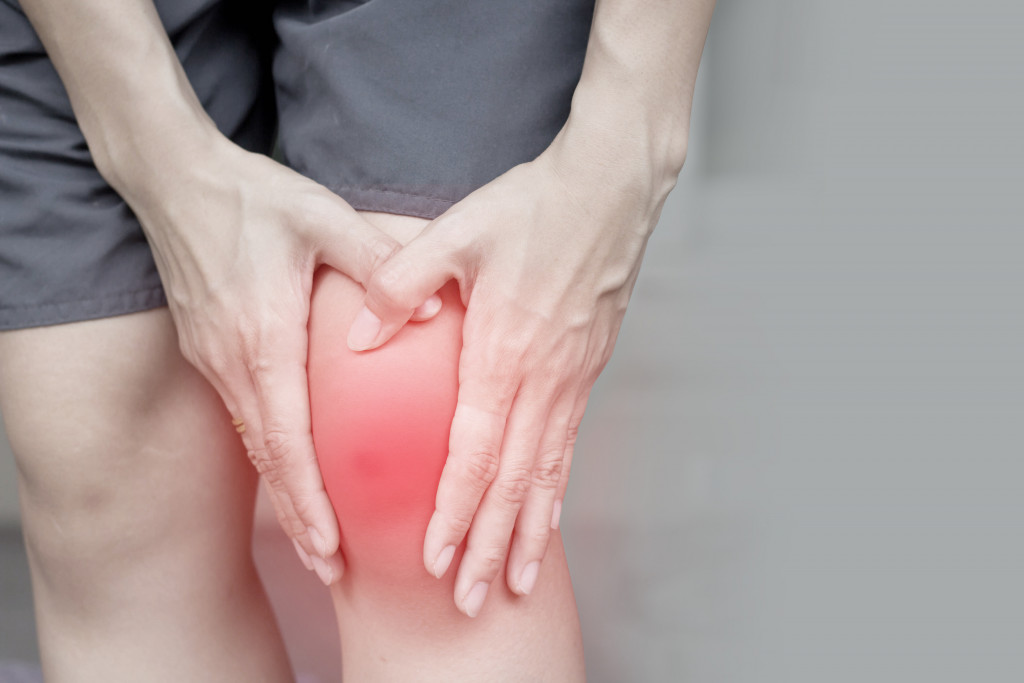- Exercise regularly to improve joint flexibility and reduce pain and inflammation.
- Maintain a healthy diet rich in fruits, vegetables, and whole grains to reduce inflammation.
- Use heat and cold therapy to reduce pain and swelling.
- Consider medications or supplements before taking any new treatments.
- Consult with a knee doctor for a personalized treatment plan.
Knee osteoarthritis is a common condition that affects millions of people worldwide. It can cause pain, stiffness, and reduced mobility, making it challenging to perform everyday activities. However, you can still lead an active and fulfilling life with proper management and treatment. This guide will share five tips for managing and dealing with knee osteoarthritis.
1. Stay Active
Staying active is one of the most important things you can do to manage knee osteoarthritis. Exercise can help improve joint flexibility and reduce pain and inflammation. Low-impact activities such as walking, cycling, and swimming are recommended. It’s best to consult a physical therapist about developing an exercise program that suits your needs.
Additionally, stretching before and after exercise can help loosen up your muscles and reduce the risk of injury. You can also incorporate exercises that strengthen the muscles around your knee, such as squats and lunges. Regular exercise can help you maintain a healthy weight, reducing knee stress.
2. Maintain a Healthy Diet

Maintaining a healthy diet is essential for managing knee osteoarthritis. Eating a diet rich in fruits, vegetables, and whole grains can help reduce inflammation. Omega-3 fatty acids in fish, nuts, and seeds can also help reduce inflammation. On the other hand, processed and fried foods, sugary drinks, and alcohol can increase inflammation and contribute to weight gain.
3. Use Heat and Cold Therapy
Heat and cold therapy can help reduce pain and inflammation in your knee. Applying a heat pack to your knee can help loosen your muscles and improve joint flexibility. On the other hand, applying a cold pack can help reduce swelling and numb pain. Following the correct technique when using heat and cold therapy is essential to avoid injury.
It is important to receive medical advice before using heat and cold therapy, as certain conditions can worsen with applying either temperature. For instance, heat may worsen the symptoms if you have an infection in your knee joint; therefore, it is best to consult a doctor before proceeding. Applying a hot or cold pack correctly is important to prevent the risk of burns or frostbite.
4. Consider Medications and Supplements
Several over-the-counter and prescription medications can help manage knee osteoarthritis symptoms. However, it’s essential to consult with your doctor before taking any new medication or supplement to avoid any potential side effects.
Here are other medications and supplements for knee osteoarthritis:
Acetaminophen
Acetaminophen is a pain reliever that can help reduce pain associated with knee osteoarthritis. It works by blocking the body’s production of certain chemicals, which can reduce inflammation and swelling. For best results, please take it as directed on the package label or as instructed by your doctor. Make sure to take the correct dosage and not exceed what is recommended.
Nonsteroidal Anti-inflammatory Drugs (NSAIDs)
NSAIDs are anti-inflammatory medications that work to reduce pain and swelling. They are available in over-the-counter and prescription forms and should be taken as directed on the package label or according to your doctor’s instructions. Be aware of possible side effects such as stomach upset, nausea, or increased risk of bleeding and stroke.
Glucosamine and Chondroitin
Glucosamine and chondroitin are two dietary supplements that can help improve joint health. They work by stimulating the production of collagen, which is necessary for healthy joints. It’s important to note that limited evidence supports their effectiveness for osteoarthritis symptoms. Before taking any supplement, it’s best to consult with your doctor first.
Corticosteroids

Corticosteroids are powerful anti-inflammatory medications that reduce pain and swelling in people with knee osteoarthritis. They are usually injected directly into the joint and typically provide relief for several weeks. Possible side effects of corticosteroids include an increased risk of infection and bone thinning, so it’s important to talk to your doctor before getting a corticosteroid injection.
Hyaluronic Acid Injections
Hyaluronic acid injections are often used in people with knee osteoarthritis who have not responded to other treatments. It is injected directly into the joint, improving lubrication and reducing inflammation. Possible side effects include temporary pain at the injection site, so talking to your doctor before getting a hyaluronic acid injection is important.
5. Consult with a Knee Doctor
If your knee osteoarthritis symptoms persist despite self-care measures, it’s essential to consult with a reliable knee doctor. A knee doctor can diagnose more accurately and develop a personalized treatment plan that suits your needs. They may recommend physical therapy, injections, or even surgery, depending on the severity of your condition.
In Summary
Knee osteoarthritis can be challenging to manage, but it’s possible to live a healthy and active life with the right tools and resources. By staying active, maintaining a healthy diet, using heat and cold therapy, considering medications and supplements, and consulting with a knee doctor, you can manage your symptoms and improve your quality of life.






